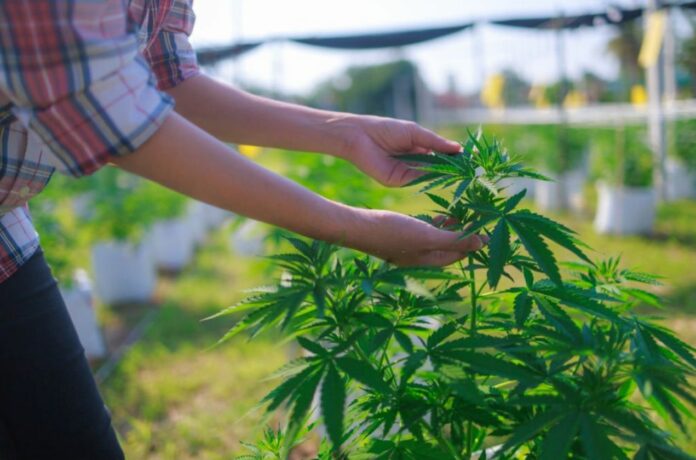Since the 2018 Farm Bill made it permissible for farmers to produce industrial hemp for the first time since the 1970 Controlled Substances Act, there has been much talk regarding hemp, also known as THC.
One is an illegal substance derived from marijuana, while the other is touted as a harmless herbal substitute. But the differences between them that people say they see aren’t supported by science, a group of UConn researchers report in Drug and Alcohol Dependence.
The psychoactive component of cannabis is tetrahydrocannabinol, or THC for short. The federal government classifies Δ9-THC (also known as delta-9-THC) as a Schedule 1 substance with no recognised medicinal use. However, other forms of THC that differ only by the placement of a double bond, such as Δ8-THC, continue to be quietly quasi-legal at the federal level.
The hemp and cannabis sectors are in conflict due to the varying legal statuses of the different forms of THC. Additionally, consumers may be harmed. Although Δ8-THC is thought of as a herbal extract of hemp, there are no purity or safety regulations, and many manufacturers employ solvents and chemical procedures that may leave dangerous residues in the product.
Due to the lack of regulation, some goods contain extremely high concentrations of THC and its variations, including the dangerously strong ∆8. Not all countries agree that it is safe or even allowed to use. ∆8-THC is now as strictly regulated as ∆9-THC in some areas, like Connecticut, but it is still lawful in others. Producers of cannabis claim that the distinction is causing unfair rivalry between the markets for hemp and marijuana.
If making Δ9-THC illegal is based on the fact that it has physical and mental effects, then the first step to making Δ8-THC illegal would be to find out if it has the same effects. And those who have used both agree that it does; most individuals agree that the effects of Δ8 are similar to those of Δ9.
Professor Steve Kinsey of the UConn School of Nursing and director of the Center for Advancement in Managing Pain, along with graduate student Olivia Vanegas and colleagues from UConn Chemistry and local company 3BC Inc, chose to test this theory on mice. Research conducted in Japan in the 1980s revealed that mice treated with Δ8-THC and Δ9-THC experienced the same effects. The mice given Δ8 became lethargic, their body temperatures dropped, and they developed cataleptic behavior, which allowed the researchers to place the mice in unusual positions and have them remain there for several seconds—a characteristic that is common in THC-treated mice but not in untreated mice. Kinsey and Vanegas replicated that research and confirmed its validity.
The researchers then proceeded to inhibit the THC receptors on the mice. Since Δ8-THC had no effect on blocked mice, it is evident that 8 interacts with the same receptors as Δ9-THC.
Then, for five days, the scientists administered a group of mice Δ8-THC twice daily. The mice eventually grew accustomed to it. The mice then displayed withdrawal-like behavior after receiving the THC blocker.
Finally, RTI International collaborators conducted an experiment “asking” mice how the medicine makes them feel. Prior to giving the mice a dose of Δ9-THC, the mice were trained to visit a particular location to receive a reward. The mice were given doses of Δ8-THC following the training. Naturally, they traveled to the same reward location as when they received the dose of Δ9.
“So they’re telling us the same thing people buying the stuff in gas stations tell us: Δ8 feels like THC,” Kinsey adds.
Chemically, it makes no sense. Similar molecules like Δ8- and Δ9-THC typically, though not always, have the same effects on the body. However, it presents numerous legal challenges.
The congressional Farm Bill, which addressed hemp cultivation and commerce, is what gave rise to the division between “8-” and “9-.” Cannabis plants that contain less than 0.3% Δ9-THC by dry weight are referred to as hemp. Anything with a concentration of Δ9-THC higher than that is regarded as marijuana. The Farm Bill also says that anything else that is a natural part of the hemp plant is also legal. This contains Δ8-THC.
John Harloe, an attorney on Colorado’s THC task force, asserts that it is causing a conflict between marijuana and hemp growers. Due to confusion in the Farm Bill, Harloe claims that products labeled as marijuana “must be sold through dispensaries and pay high taxes, while hemp producers can sell essentially the same product but without the same regulations.”
Harloe is to present Kinsey and Vanegas’ study to the Colorado task force. The taskforce is trying to come up with the right rules that will cover the different chemical forms of THC, protect public safety, and not hurt the hemp industry too much. As federal regulations have limited studies of THC and its intoxicating effects, this paper is all the more important.
“Any bit of science is going to be influential,” Harloe adds.
Source: 10.1016/j.drugalcdep.2022.109640
Image Credit: Getty
You were reading: What Makes Hemp A Safe Herbal Therapy And Marijuana Illegal?
